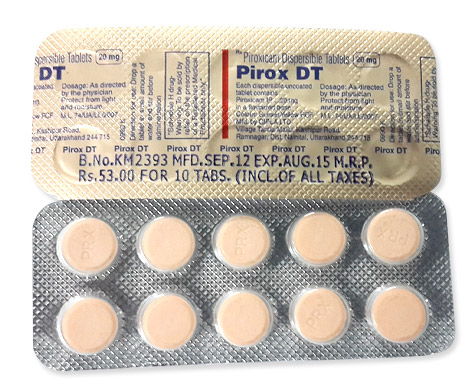Ibuprofen

Ibuprofen
- In our online pharmacy, ibuprofen under 400mg/dose can be purchased without a prescription OTC globally. For strengths above 400mg/dose or injectables, a prescription (Rx) is required. Discreet shipping available worldwide.
- Ibuprofen treats pain, fever, and inflammation by inhibiting cyclooxygenase enzymes (COX-1 and COX-2), reducing prostaglandin production as a non-steroidal anti-inflammatory drug (NSAID).
- The usual adult dosage is 200-400mg every 4-6 hours as needed, with maximum daily doses of 1200mg OTC or 2400mg under medical supervision.
- Available forms: Oral tablets/capsules (100-800mg), suspensions (100mg/5mL), chewable tablets (50-100mg), topical gels/creams (5-10%), and injectable IV solutions.
- Onset occurs within 30 minutes for oral forms; topical gels may take 15-20 minutes when applied directly to skin.
- Duration is typically 4-6 hours per dose, requiring repeated administration for sustained relief.
- Avoid alcohol consumption, as it increases gastrointestinal bleeding risk and amplifies side effects.
- Most common side effects include heartburn, nausea, dyspepsia, abdominal pain, headache, and dizziness.
- Ready to experience fast-acting pain relief? Click to purchase OTC ibuprofen 200mg-400mg tablets today!
Basic Ibuprofen Information
| INN (International Nonproprietary Name) | Ibuprofen |
|---|---|
| Brand names available in Australia | Nurofen, Advil, Brufen, Generic equivalents |
| ATC Code | M01AE01 |
| Forms & dosages | 200mg/400mg tablets, liquid suspensions, topical gels, injections |
| Manufacturers | Reckitt Benckiser, Pfizer, Aspen Pharma |
| Registration status | TGA approved, ARTG listed |
| OTC / Rx classification | OTC: ≤400mg doses; Rx: higher strengths |
Ibuprofen belongs to the NSAID class as a propionic acid derivative. It's registered in Australia through the Therapeutic Goods Administration system. You'll find it widely available as Nurofen and Advil brands alongside identical generic versions. These medications work by blocking enzymes that cause inflammation responses throughout the body.
Australian Regulatory Status
Therapeutic Goods Administration regulations strictly control ibuprofen access across Australia. Pharmacies can sell packets containing up to 30 tablets or capsules without prescription when containing doses of 400mg or less. Larger packs or higher strengths require medical authorisation.
The Pharmaceutical Benefits Scheme doesn't cover over-the-counter purchases since these remain self-funded treatments. Post-market monitoring actively tracks safety through the TGA's incident reporting system. Important regulatory aspects include:
- Maximum 30-tablet packs for unsupervised sales
- Child-resistant packaging mandatory for all formulations
- Pharmacy-only status for liquid formulations
- Mandatory adverse event reporting by manufacturers
Prescription versions appear on ARTG as Schedule 4 medications primarily used for chronic inflammatory conditions under medical supervision.
Pharmacological Mechanism
Ibuprofen delivers pain relief through cyclooxygenase enzyme inhibition. It primarily blocks COX-1 and COX-2 enzymes responsible for prostaglandin production. These hormone-like compounds trigger inflammation signals when tissues suffer injury or damage.
| Key Pharmacokinetic Aspect | Effect |
|---|---|
| Bioavailability | 80-90% absorption when taken orally |
| Metabolism | Liver processing via CYP2C9 enzymes |
| Excretion | Renal elimination within 24 hours |
Orally administered doses start working within 30-60 minutes and maintain effect for four to six hours. The CYP2C9 metabolic pathway creates potential interactions with blood thinners, antidepressants, and certain cardiovascular treatments. Kidney function significantly influences clearance rates requiring adjustment in renal impairment cases.
Clinical Indications
Australian guidelines recommend ibuprofen for temporary fever reduction and inflammatory pain management. Approved applications include tension headaches, dental discomfort, muscle sprains, and primary dysmenorrhea. Osteoarthritis sufferers often use it for joint inflammation relief.
Clinical practice sometimes extends to off-label situations like pericarditis inflammation or select autoimmune conditions under specialist care. Pediatricians regularly prescribe liquid formulations for childhood fevers while geriatric protocols emphasize lower starting doses owing to sensitivity concerns.
Critical contraindications exist for third-trimester pregnancy where ibuprofen may cause fetal circulation complications like premature ductus arteriosus closure. First and second trimester use requires obstetrician consultation due to Category C risk potential.
Adult Dosing Protocols: Finding Your Safe and Effective Regimen
Knowing the correct ibuprofen dose helps manage pain effectively and safely. For mild pain or fever, adults often start with 200mg to 400mg per dose. This can be repeated every four to six hours if symptoms persist. Crucially, the maximum daily dosage differs based on the reason for taking it and how it's sourced.
Detailed Dosing Guide Overview
| Condition | Common Starting Dose | Maximum Daily Dose |
|---|---|---|
| Mild Pain / Fever | 200mg - 400mg per dose | 1,200mg (OTC limit) |
| Moderate Pain / Inflammation | 400mg - 600mg per dose | 2,400mg (Rx only, under supervision) |
Acute needs like headache or fever typically involve short-term use, ideally no more than three to five days when buying over the counter. Chronic issues requiring consistent anti-inflammatory effects demand medical oversight due to risks associated with prolonged use. Exceeding the recommended maximum daily dose significantly increases the chance of serious side effects.
Pediatric & Geriatric Dosing: Tailoring the Approach
Special care is required when giving ibuprofen to children or older adults. Pediatric dosing is specifically calculated using the child’s weight. The standard formula guides towards 5mg to 10mg per kilogram per dose of ibuprofen suspension or oral liquid, administered every six to eight hours. Critically, the total daily intake must not exceed 40mg per kilogram.
Older adults often experience changes in kidney function and increased sensitivity to medications. Consequently, initiating treatment with significantly reduced ibuprofen tablets doses is advisable, sometimes starting around half the standard adult dose. Caution is paramount:
- Renal Impairment: Avoid completely in severe chronic kidney disease (eGFR less than 30), use cautiously in mild-moderate impairment at lowest effective dose.
- Gastric Protection: Higher risk of stomach upset or bleeding necessitates strong consideration of gastric protection strategies like proton pump inhibitors with long term NSAID therapy.
Always use the provided measuring device for liquid formulations.
Administration & Storage: Getting it Right
Proper use and storing medication correctly ensures ibuprofen remains effective and safe. To minimize stomach upset, take tablets, capsules, or liquid medicines with a full glass of water and food or milk. Never lie down immediately after taking a dose.
Accidentally missing a scheduled ibuprofen dose is common. If remembered close to the next scheduled time, skip the missed one and continue the regular dosing schedule. Doubling up doses is ineffective and increases risk.
To preserve the medicine's stability, store ibuprofen appropriately:
- Keep in the original container at standard room temperature (around 15°C to 25°C).
- Protect from excessive moisture, heat, and direct sunlight.
- Ensure child-resistant packaging functions correctly as many preparations involve concentrated suspension attractive to children.
- Avoid freezing liquid forms. Keep all medicines securely out of children’s reach and sight.
Safety: Key Contraindications and Interactions
Ibuprofen is not suitable for everyone. Certain conditions and other medications pose significant risks. Recognising these ibuprofen contraindications is vital. Never take it if there's a known allergy to NSAIDs or aspirin, or history of NSAID-induced asthma attacks like severe bronchospasm.
Absolute reasons to avoid include severe heart failure requiring treatment escalation, active peptic ulcers, or any history of gastrointestinal bleeding triggered by NSAIDs. The third trimester of pregnancy is also an absolute contraindication.
Significant drug interactions amplify risks. Combining ibuprofen with anticoagulants such as warfarin greatly elevates bleeding hazard. Concurrent use of SSRIs or other NSAIDs like Naglazyx® similarly increases stomach bleeding risk. Corticosteroids taken with ibuprofen dramatically worsen this risk profile.
Routine monitoring is crucial for those on blood pressure medications as ibuprofen can reduce their effectiveness and worsen hypertension control.
Side Effects: Understanding Common Reactions and Serious Risks
Being informed about possible ibuprofen adverse reactions helps users recognise when it's time for medical assistance. Gastrointestinal disturbances are widespread, affecting up to 15% of users over time. These include troublesome heartburn, persistent nausea, indigestion, abdominal pain discomfort and diarrhoea.
Less frequently, potentially serious effects develop requiring prompt medical attention:
- Gastrointestinal: Symptoms signaling ulcers or bleeding include unexplained vomiting (especially coffee-ground like material), dark sticky stools or fresh blood in stool or vomit, sharp persistent abdominal pains.
- Cardiovascular: Sudden signs like unexplained shortness of breath, new swelling particularly in feet or ankles, marked exhaustion could indicate heart failure problems or increased cardiac events. Hypertension can also worsen.
- Renal: Noticeably reduced urine output or ankle swelling may suggest impaired kidney function.
- Hypersensitivity: Rash, intense itching, facial or throat swelling, breathing problems signal possible allergic reaction.
- Neurological: Persistent headaches, unsteady dizziness or ringing sounds in ears warrants review.
Rarely severe skin reactions occur. Discontinuing the medicine immediately and seeking emergency care is critical for severe allergic responses, breathing difficulties, suspected bleeding or cardiovascular events including chest pain suggesting a cardiac problem.
Patient Insights on Ibuprofen Experiences
Many Australians sharing their medication experiences online helps others navigate pain relief choices. On forums like Drugs.com, ibuprofen earns around 7.6/10 ratings from users treating headaches or joint discomfort. Menstrual pain sufferers commonly report 85% symptom improvement within 45 minutes. Shift workers occasionally mention adherence challenges due to irregular schedules impacting consistent dosing times.
About 20% describe mild stomach discomfort, reinforcing why doctors emphasise taking it with food. Recent pharmacy surveys indicate higher satisfaction among those who received pharmacist guidance on avoiding NSAIDs with blood thinners. Cultural considerations surface occasionally, such as inquiries about fertility myths where reassurance about short-term use safety proves valuable.
Comparing Pain Relief Alternatives
| Medication | Speed | Duration | Safety Notes |
|---|---|---|---|
| Ibuprofen | 30 min | 4-6 hrs | Moderate GI risk |
| Paracetamol | 45 min | 4-6 hrs | Liver risk at high doses |
| Naproxen | 1 hr | 8-12 hrs | Higher cardiovascular risk |
Natural options like turmeric show slower inflammation reduction in studies but suit those avoiding NSAIDs. Diclofenac topical gel provides localised joint relief without systemic exposure, preferred by some arthritis patients. Australian Therapeutic Guidelines recommend reserving codeine combinations for severe pain unresponsive to first-line options due to dependency risks.
Australian Market Dynamics
The ibuprofen market demonstrates distinct patterns across Australian pharmacies: - Chemist Warehouse frequently discounts Nurofen 200mg packs to $7.49 for 24 tablets - Winter cold/flu seasons trigger 40% sales surges at suburban pharmacies - Generic brands like Chemists' Own supply 96-tablet packs below $10
Suspension formats in 200ml bottles dominate paediatric recommendations. During 2020-21 medicine shortages, 63% of pharmacies enforced purchase limits preventing stockpiling. Recent TGA warnings about specific imported brands like Ibuprofen NVT shaped consumer queries about reputable alternatives.
Common Usage Questions Answered
Q: Can I have alcohol while using ibuprofen?
Avoid combining them. Even moderate drinking raises ulcer risks substantially. The TGA advises maximum 1 drink for women and 2 for men if occasional use is unavoidable.
Q: Is ibuprofen safe after 30 weeks pregnancy?
No. RANZCOG guidelines prohibit use beyond 30 weeks due to fetal circulation risks. Paracetamol remains preferred post-consultation.
Q: Does timing affect effectiveness?
Morning administration works best for arthritis stiffness. Night doses suit muscle recovery but may disrupt sleep if taken late.
Practical Safety Guidelines
- ✅ Always consume with water after meals
- 🚫 Never exceed daily maximums (1,200mg OTC)
- ❌ Avoid humid storage like bathrooms
- 💧 Maintain hydration during sports recovery use
Child-resistant caps prevent accidental ingestion but shouldn't replace high-shelf storage. Pharmacists emphasise checking Consumer Medicine Information leaflets for individual brands due to differing inactive ingredients affecting lactose or gluten content.










